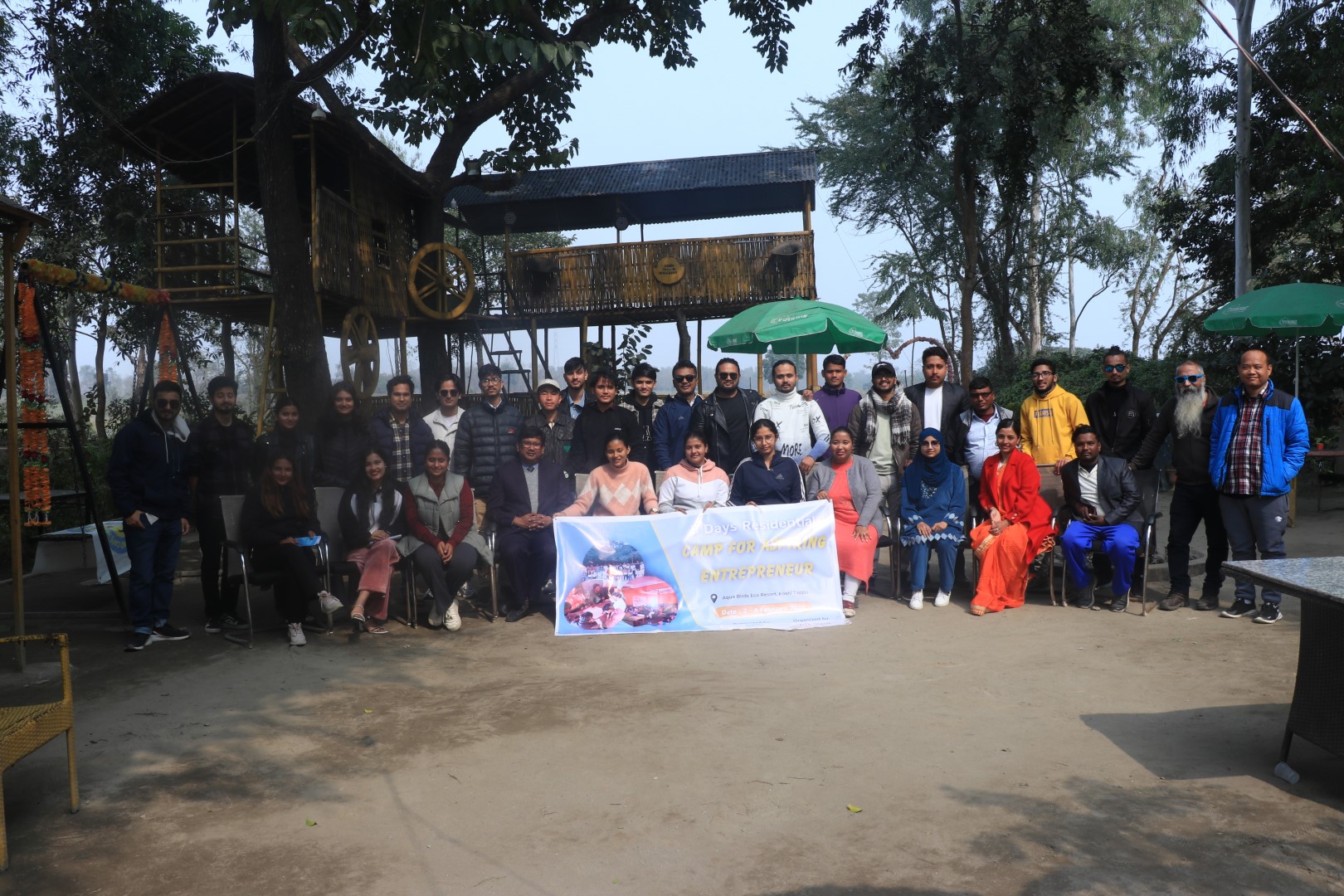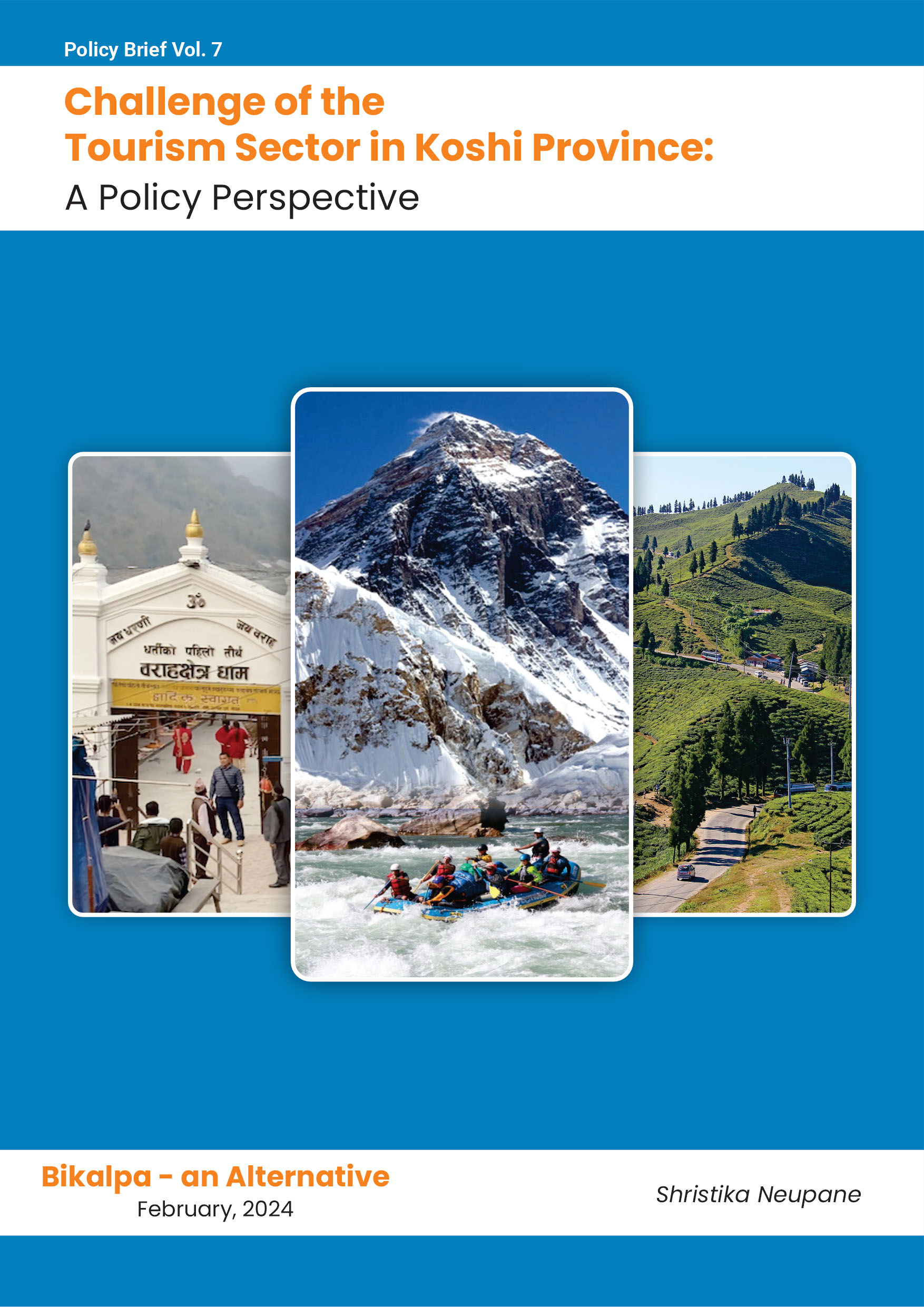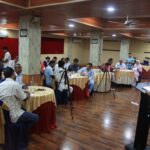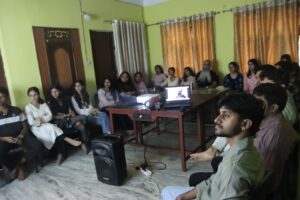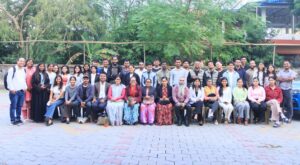Bikalpa, an Alternative with the support of CIPE International, conducted a Three-day residential camp for Aspiring Entrepreneurs from 2-4 February 2024, at Aqua Birds Resort Koshi Tappu. The training provided a unique opportunity to gain in-depth insight into practical skills and knowledge essential for entrepreneurship, including business planning, marketing strategies, financial management, and resources needed to kickstart their entrepreneurial journey and succeed in the competitive business landscape. Esteemed experts led the session through engaging lectures, interactive learning methods, networking, guidance, and Panel discussions designed to allow participants to explore and share ideas about entrepreneurship. The three-day camp brought together 24 diverse and dynamic groups of aspiring entrepreneurs who share the goal of advancing entrepreneurship in their area.
The three-day camp includes the topics on How to generate & start new business, Basic Tax Principles, Business Registration & Compliance, Access to Finance, Marketing and Branding, Business operation & Cash Flow Management and Supply Chain Management. Among the distinguished speakers were, Mr. Som Adhikari (Director oof Arihant Agri farm and research Center pvt.Ltd), Mr Hari Prasad Sedhain (Information Officer ,Inland Revenue Department Biratnagar ), Chudamani Neupane (MOIAC, Biratnagar), Rishi prasad Neupane (), Rabin Bhandari ( NMB Bank Manager, Itahari), Dr Sandesh Das Shrestha ( Dean Purbanchal University) and Dr Biju Thapaliya (Prof PU School of Management Purbanchal University).
Day 1
Session 1 : How to Generate & Start New Business Ideas
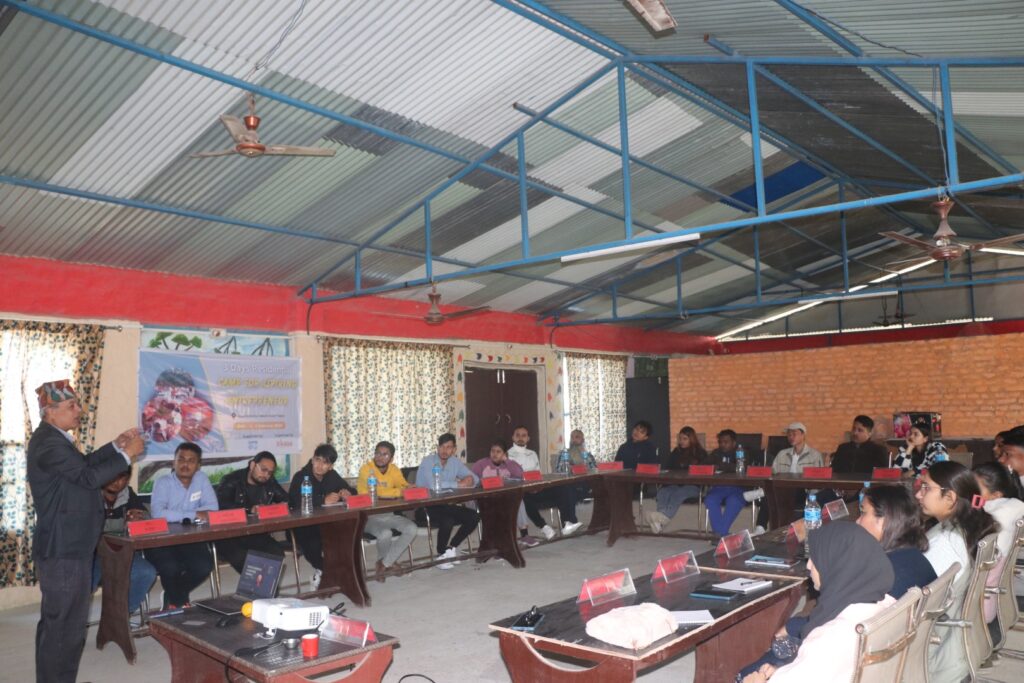
Mr. Som Adhikari emphasized the crucial steps involved in initiating new business concepts. He stressed that the primary step is recognizing one’s passion and expertise. By aligning the business with these aspects, individuals can derive greater satisfaction from the entrepreneurial journey and enhance their likelihood of success. He said many startups and small companies fail after some time because thorough market research becomes imperative upon conceptualizing a business idea. Market research yields invaluable insights that aid in refining the business concept and crafting a distinctive value proposition.
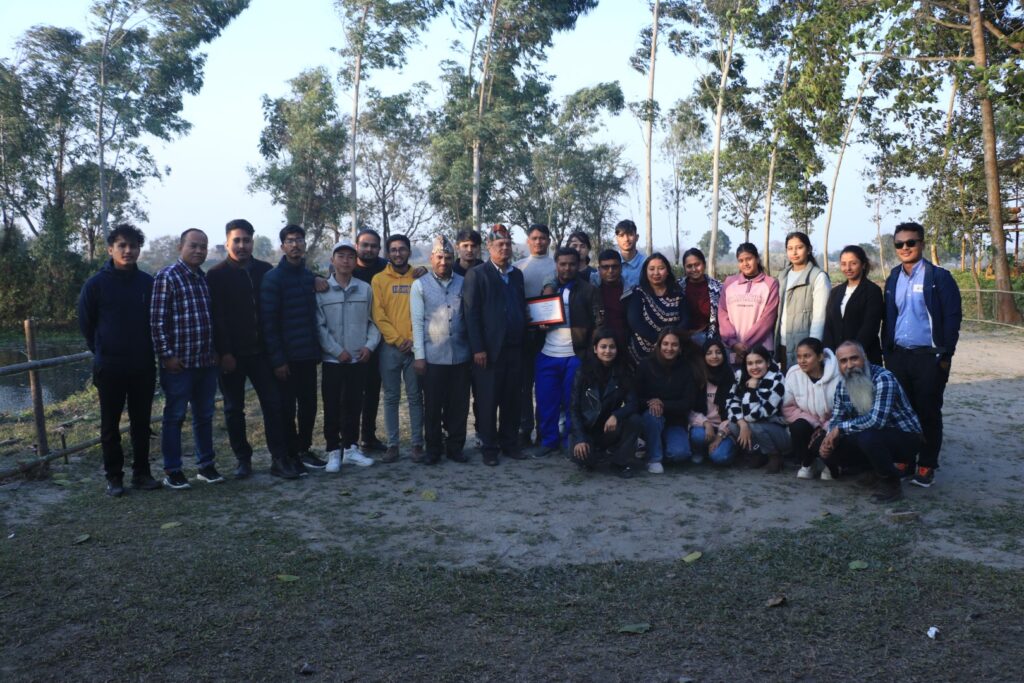
Furthermore, Mr. Adhikari highlighted the significance of crafting a meticulously detailed business plan for the prosperity of any new venture. This plan should delineate the business goals, target market, competitive analysis, marketing strategies, operational blueprint, and financial projections. As a navigational guide, the business plan ensures focus and organization throughout the establishment and expansion phases. He also addresses all legal and regulatory obligations, which is imperative before the business launch. This includes selecting an appropriate legal structure, such as sole proprietorship, partnership, LLC, or corporation, registering the business name, and procuring necessary permits or licenses.
In conclusion, he said after the business launch, actively soliciting and incorporating customer feedback is advised to refine and enhance products or services. Maintaining vigilance over market trends, staying abreast of industry developments, and remaining adaptable to meet evolving customer needs are ongoing imperatives to sustain competitiveness.
Session : Basic Tax Principles of Taxation
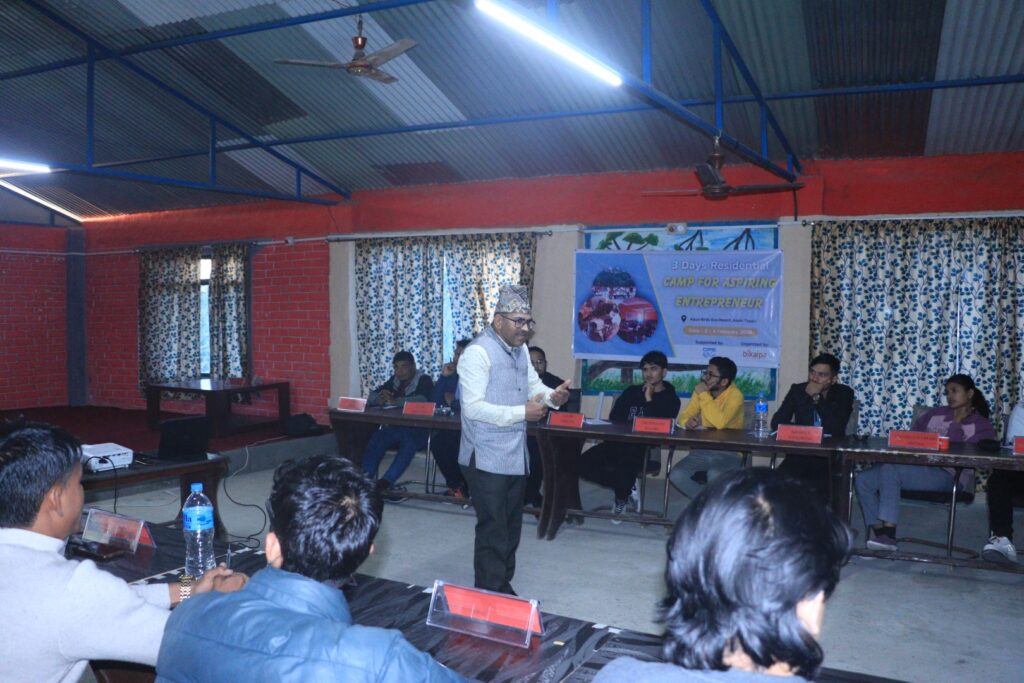
In his session, Mr Hari Sedhain begins by setting the context and defining several vital concepts of Basic Tax Principles and how they apply to businesses. He said taxation is how a nation collects resources directly and indirectly from its citizens to fund various governmental activities such as infrastructure development, public services, and welfare programs. This collection is overseen and administered by the Internal Revenue Department. He shared that there are primarily two types of taxes: direct and indirect. Direct taxes are levied directly on individuals or entities’ income. Examples include income tax, social security contributions, taxes on wages, dividends, capital gains, and windfall taxes. On the other hand, indirect taxes are based on consumption. These include taxes like Goods and Services Tax (GST), excise duty, taxes on education and health services, and vehicle taxes.
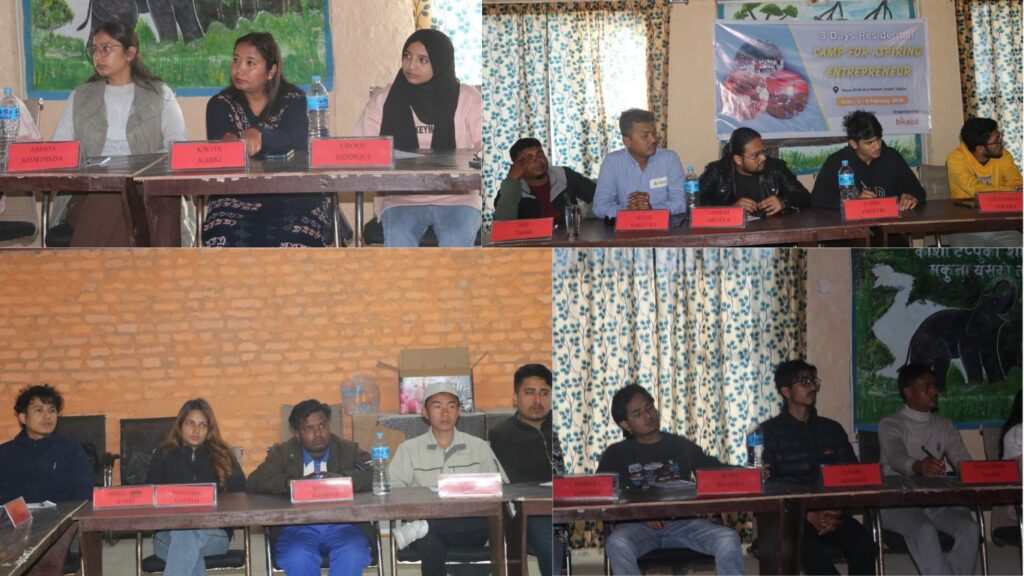
Mr Sedhain, taking the session forward, aspects to be followed by businesses regarding taxation. Firstly, companies must understand their operational environment, including access to raw materials, availability of skilled workforce, and market conditions. Tax implications may vary depending on the nature of the industry—whether it’s in the service sector or involved in trading. Furthermore, geographical location matters. Remote areas may have different tax incentives or structures compared to urban areas. When it comes to costs, businesses must conduct thorough analyses of direct and indirect expenses. Capital procurement can also affect taxation, whether it’s through self-funding, partnerships, shareholder investments, or personal loans.
He also briefly discussed the legal structures of businesses and their tax implications. For sole proprietorships, the individual owner is responsible for all aspects of the company, including taxation. Registration may vary depending on the industry’s nature, whether domestic or commercial or involving specific regulatory bodies like local and provincial governments. On the other hand, entities like private limited companies have a separate legal identity from their owners. Registration involves processes overseen by the Company Registrar. Such entities typically have more complex governance structures, including boards of directors or working committees, which supervise business activities and decision-making processes.
Day2
The day two session was started with the reflection of day one session and participant’s feedback regarding the all sessions.
Session : Businesss Registratin & The Compliance
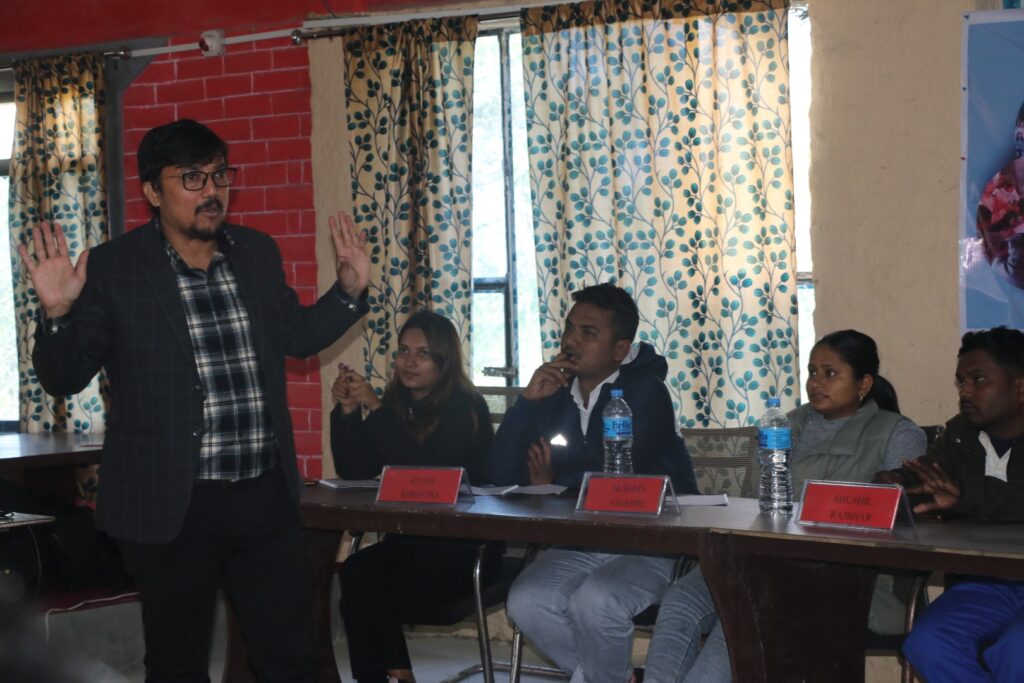
The session began with an overview of pre-registration and Post-Registration Activities, emphasizing the groundwork for a smooth registration process. He explained the documentation required for different types of businesses and legal structures. He also covered the various government agencies and regulatory bodies involved in the registration process and their roles and responsibilities. Participants were also introduced to a clear understanding of post-registration activities vital for companies’ effective governance and legal compliance. It helped them understand adherence to regulations by understanding board governance, shareholder meetings, financial reporting, and tax compliance processes. The session stressed the importance of proactive management and regulatory compliance in safeguarding the company’s long-term success in the business landscape. He also shared the legal provisions governing companies and business enterprises at the federal level in Nepal. By familiarizing themselves with essential laws, rules, and regulations, participants were better equipped to navigate the legal landscape, ensure compliance with regulatory requirements, and foster sustainable business growth and development.
Session : Business operation Automation- A lean management approach
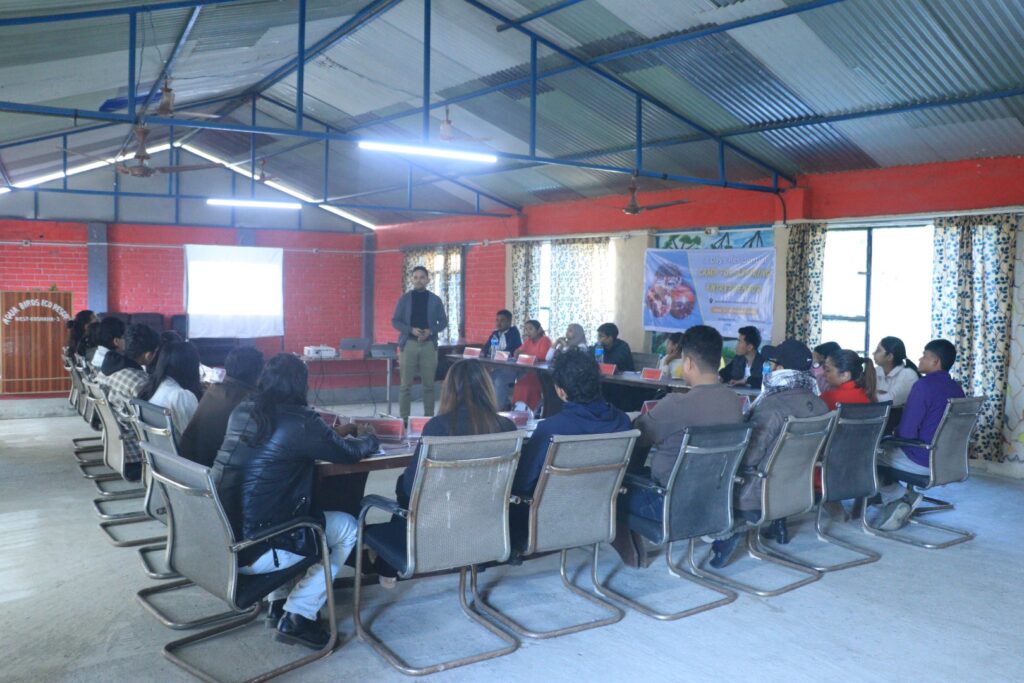
Mr Abhinayak Malla outlined the session in Lean Management, emphasizing its principles, methodologies, and people-oriented approach to enabling continuous improvement. By understanding Lean as a proven method for increasing efficiency and reducing waste, participants were better equipped to drive organizational excellence and achieve sustainable success within their respective areas. The session catered its content to aspiring entrepreneurs, guiding them through fundamental concepts and strategies to streamline processes and maximize efficiency. An essential checklist was a starting point, highlighting vital elements for entrepreneurial success, including idea generation, a problem-solving mindset, consistency, and a strategic focus on business development. He also elaborated on how participants learned about translating ideas into actionable plans for business success. It included systematically documenting ideas, developing comprehensive business and implementation plans, understanding Lean Management concepts for process optimization, and effectively managing revenue models and cash flow.
Mr Malla, taking the session forward, explains valuable insights into the five core principles for people in Lean Management, emphasizing practices that cultivate a culture of engagement, continuous improvement, and problem-solving within organizations. By embracing these principles, organizations can create environments where employees feel valued, supported, and motivated to contribute to shared goals and drive organizational success.
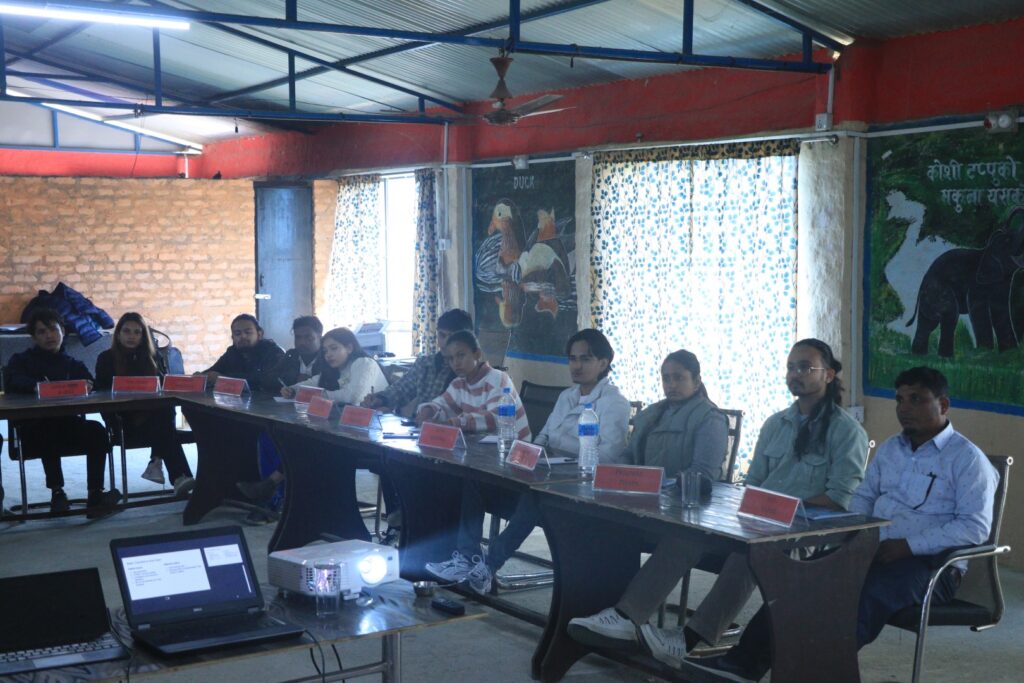
Furthermore, the session focused on seven essential strategies to enhance process efficiency and effectiveness, providing practical approaches to streamline operations and foster continuous improvement. These strategies included organizing the workspace using the 6S methodology, implementing visual management techniques, standardizing work procedures, eliminating waste, error-proofing processes, optimizing work processes, and problem-solving. By assessing the organization of their workspaces, participants recognized the advantages of having an organized workspace and the disadvantages of a cluttered workplace. In conclusion, the session equipped participants with practical strategies to enhance process efficiency and effectiveness, emphasizing the importance of continuous improvement in achieving organizational goals.
Session : Panel Discussion on Access to Finance
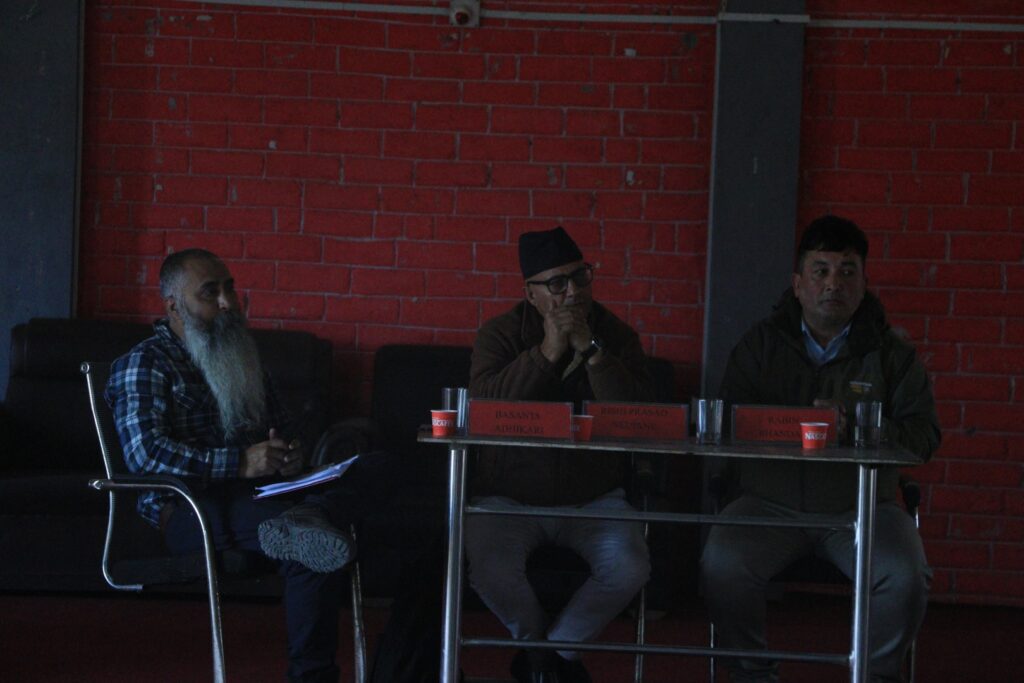
Two resource persons from the finance sectors were invited as panelists for the discussion session. The 2-hour session was divided into a closed session, where the panelists shared their experiences and opportunities the Bank and Finance company provided to aspiring entrepreneurs. The second session was open, where the participants were allowed to ask the panelists questions. The panelists included Mr Rabin Bhandari (Branch Manager of NMB Bank). Another panelist was Mr. Rishi Prasad Neupane (Nerude laghubitta bikash bank )
Rabin Bhandari commenced with an overview of banking services and their relevance to small businesses. Mr. Bhandari elaborated on the primary functions of banks, emphasizing their role in accepting deposits, making loans, and providing various financial services. Participants gained insights into the different types of banks, including commercial, consumer, investment, central, and international banks. The session highlighted the banking services that benefit small businesses, such as depository accounts, advisory services, commercial loans, and payment services.

Drawing from his bank manager experience, Mr. Bhandari delved into microloan programs and funding opportunities available for small entrepreneurs. He shared that the bank provides 80 % of the funding to scale up the business. Mr. Bhandari shed light on micro-enterprise development organizations’ lending criteria and credit requirements. This helped Participants gain insights into the typical requirements necessary for obtaining loans, including collateral and personal guarantees. Mr. Bhandari equipped participants with knowledge and strategies to navigate the financial landscape effectively, enhance their business prospects, and secure funding for their entrepreneurial ventures.

Mt Rishi prasad neupane provided insights into the evolution of microfinance and its increasing importance in addressing financial inclusion and poverty alleviation. He said Microfinance institutions are small financial institutions that offer crucial financial services like loans, savings accounts, and money transfers to people who usually need access. These services are essential for poor and low-income households, entrepreneurs, and small businesses, empowering them to improve their livelihoods and financial stability. Historically, microfinance in Nepal operated through nonprofit and government institutions focused on alleviating poverty. While the primary goal remains social impact, some microfinance institutions are now registered under the Company Act of Nepal, operating within the D-class financial institution category. He said these institutions offer microcredit loans directly to villagers, microentrepreneurs, impoverished women, and low-income families, with loan amounts reaching up to 700,000 rupees without collateral.
He also highlighted the Microcredit loan process, which is categorized in several ways, including the loan applicant and the business segment. For example, the applicant for the microcredit may be a group or an entrepreneur. The granting of credit to a group is known as group lending. Each group member may offer collateral or a group pledge to secure the loan in this case. Individual lending extends a loan to only one client responsible for repayment. In addition, microcredit may be categorized according to the activity the business performs to earn revenues.
Session : Marketing & Branding
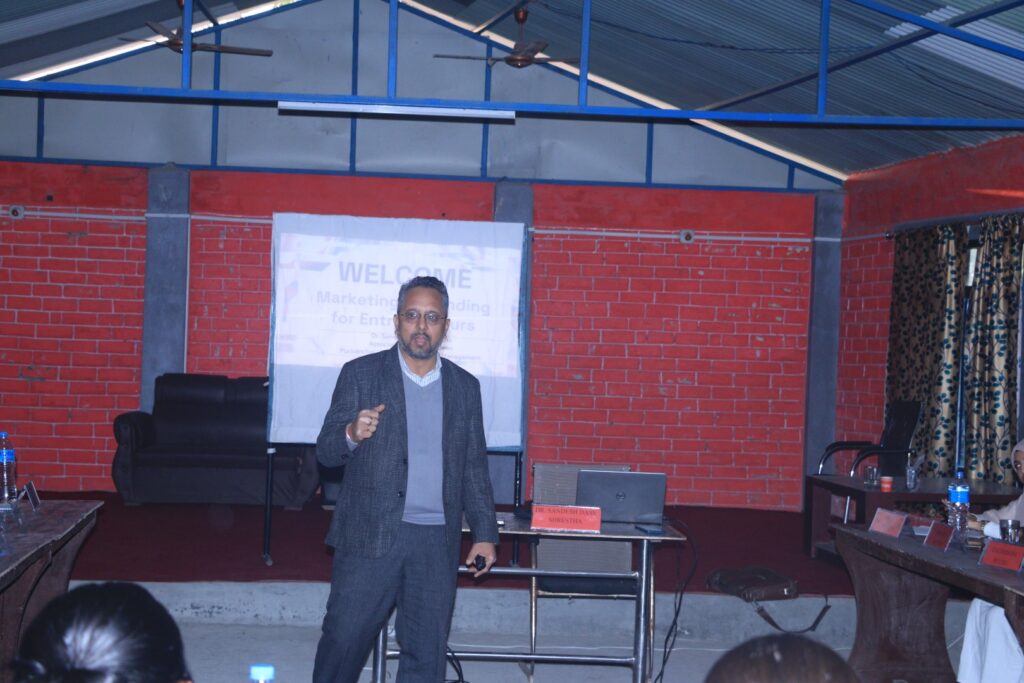
Dr. Sandesh Dass Shrestha’s session on “Marketing & Branding” unpacked the crucial role of branding in fueling a camp’s success. He delved into key concepts and principles, highlighting how robust branding acts as the cornerstone for effective marketing. Shrestha emphasized that branding precedes marketing. It defines the camp’s identity, values, and mission, laying the groundwork for impactful outreach. By clearly articulating the brand, organizers can tailor marketing efforts to resonate with their target audience and achieve desired outcomes. The session shed light on the intertwined nature of branding and marketing. While marketing focuses on short-term campaigns and revenue generation, branding fosters a long-term connection with participants. A strong brand builds loyalty sets the camp apart from competitors, and shapes consumer perception.
He further outlined the key objectives of brand marketing for the camp:
Increase Brand Awareness: Ensure the camp stands out, becoming instantly recognizable and memorable within the target audience.
Improve Brand Equity: Cultivate positive associations around the camp, encouraging repeat participation and positive word-of-mouth.
Build Customer Loyalty: Connect with participants on a personal level, fostering long-lasting relationships and repeat attendance.
Boost Sales and Growth: Influence participants’ decisions to attend, ultimately driving registration and revenue.
Create Brand Advocates: Turn satisfied attendees into ambassadors, extending the camp’s reach and impact by promoting it to others.
Shrestha concluded by stressing the importance of a unified branding strategy that dovetails with effective marketing tactics. By leveraging these principles, organizers can create a memorable and impactful experience for participants, ensuring the camp’s long-term success and sustainability.
Day -3
Supply Chain Management
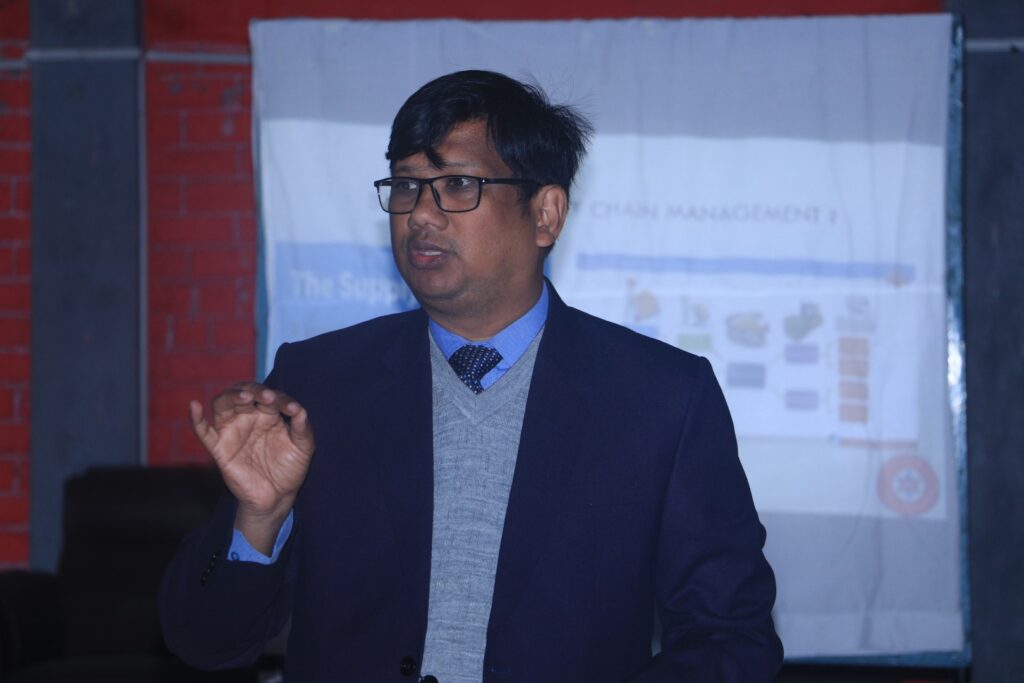
The session delved into supply chain management (SCM), highlighting its function in connecting companies with suppliers, optimizing product distribution, and securing a competitive edge. He defined supply chain management (SCM) as a holistic business process overseeing the movement of goods and services between companies, suppliers, and buyers. Supply chain Management actively manages these flows to ensure efficient production, distribution, and delivery of products to customers. He shared in modern business environments. With the exponential growth of global e-commerce, Supply chain management has become crucial for seamless operations and customer satisfaction. During the session, Participants also gained insights into the pivotal role of supply chain managers overseeing all aspects of an organization’s logistics. These managers are crucial in ensuring timely delivery and optimal product quality. Strong analytical skills are essential for effective SCM, enabling managers to monitor transportation, identify potential bottlenecks, and optimize logistics processes.
Despite a few challenges, the training was well organized and helped enrich participants’ knowledge and understanding of entrepreneurship, Business Startup, and idea values. Questions were taken from a participant during the session’s hour, and participants were open enough to share their queries regarding the topic. All the participants ended with a note that they had good experience and connections with the Network. Various interactive learning methods, such as dynamic games, panel discussions and group work, were included during the training hour. These contents helped participants with opportunities to explore and share ideas. Altogether, the event was summed up by distributing the certificate at the end of the program on 4th Febuary 2024.

